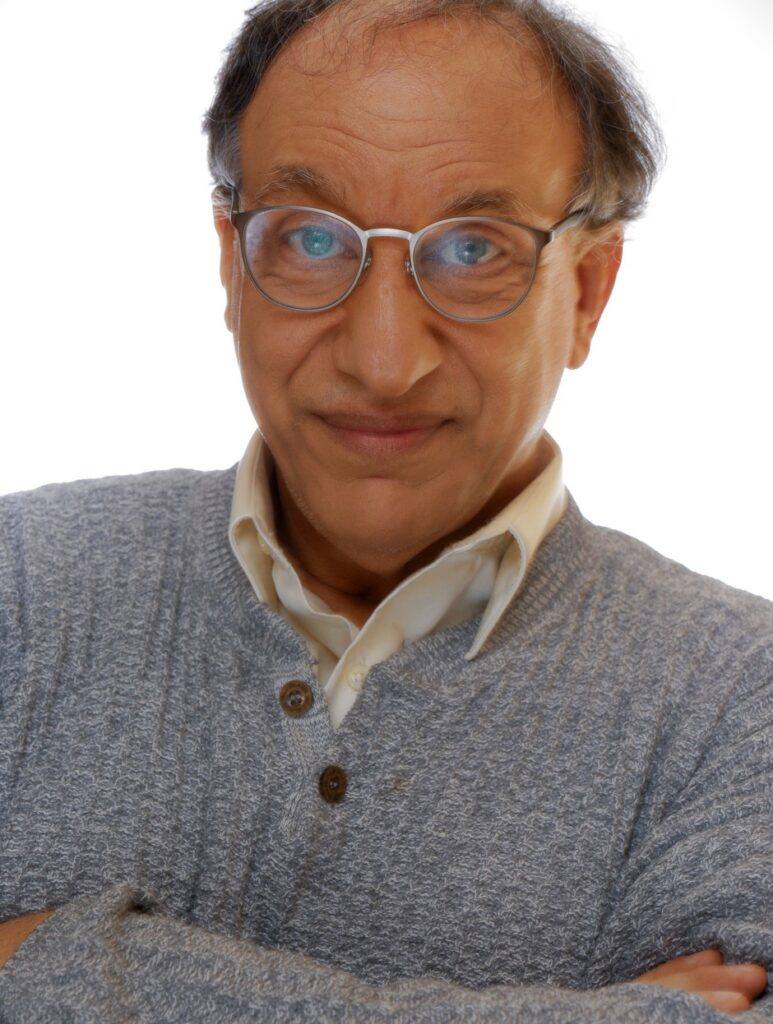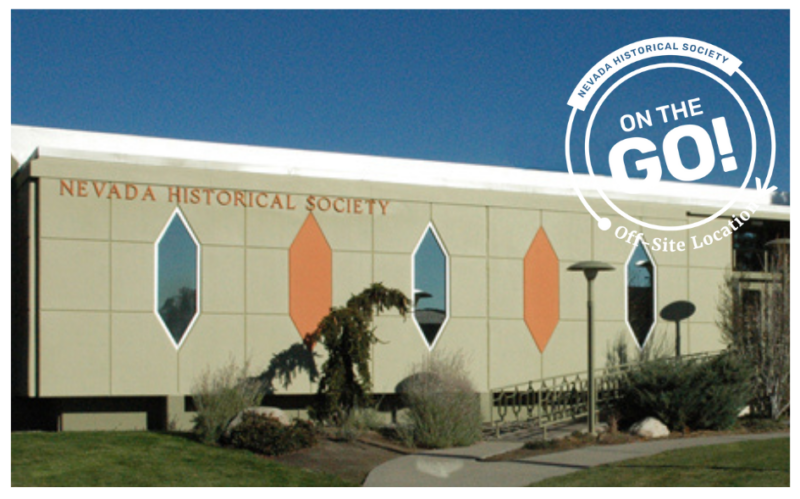Nevada History Lecture – The Place of U.S. Senator Francis G. Newlands in Nevada’s Commemorative Landscape
- This event has passed.
April 27, 2024 @ 1:00 pm - 2:30 pm
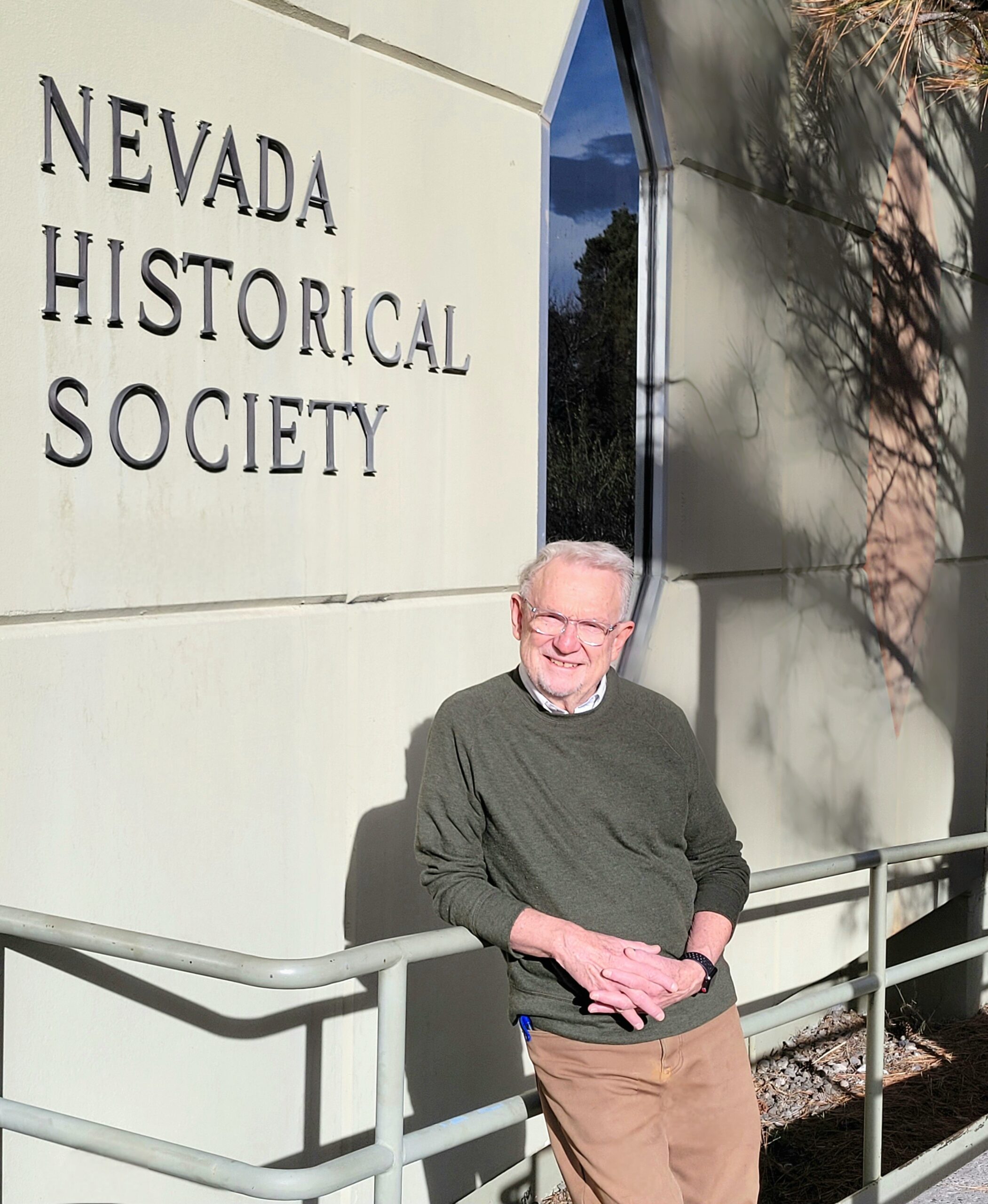
Nevada History Lecture
April 27, 2024
1:00 to 2:30pm
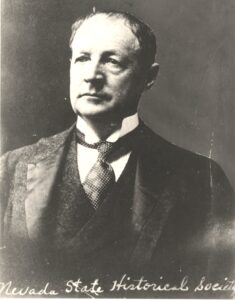
Senator Newlands
The Place of U.S. Senator Francis G. Newlands in Nevada’s Commemorative Landscape
Dr. William “Bill” D. Rowley, Grace A. Griffen Endowed Chair in American History; Professor Emeritus UNR and former NHS Q Editor
Summary of Talk
Francis G. Newlands, congressman (1893-1903), and U.S. senator (1904-1917) from Nevada held national office from Nevada as the state transitioned from the nineteenth century into twentieth century. After the turn of the century a Progressive Reform Movement churned American politics until American entrance into the Great War in 1917. Newlands became Nevada’s spokesman on the national scene addressing multiple questions of national and local concern to the state. By the end of his fourth term as representative his name was almost synonymous with the passage of the 1902 Reclamation Act that brought federal financing to the building of irrigation or reclamation projects in the arid American West and, of course, to his home state of Nevada. From this point forward as U.S. senator from Nevada, Newlands allied himself with politicians who called themselves “Progressives” in both national parties.
He saw himself as a modernizer and a champion of the federal government’s power (very unusual for a U.S. senator who identified as a Democrat) to promote the welfare of the American people. If any senator from the West had a national reputation as a voice for progressive reform and the expansion of the federal government’s power in American life it was Francis G. Newlands of Nevada in the first two decades of the twentieth century. He made his voice heard on almost every major issue facing the nation as it began the new century: American imperialism after the Spanish-American War; tariff reform; the conservation of national resources in the Conservation Movement, so enthusiastically backed by Republican President Theodore Roosevelt; the regulation of corporations by the Federal Trade Commission; the regulation of waterways for power and transportation, and finally what he called the “Race Question” in American Society. He was an ardent supporter of President Woodrow Wilson, his efforts to keep the United States out of the war in Europe and of Wilson’s eventual decision in 1917 to take the nation to the war on the side of the allies against the central powers of Germany, Austria, and Turkey.
But where is he in Nevada’s commemorative landscape? There are no buildings named after him on the campus of the University of Nevada, Reno (i.e., Stewart Hall for Senator William M. Stewart) nor statues (i.e., the John Mackay statue on the Quad and Senator Richard Bryan’s statue in a campus crosswalk). There is one rather obscure obelisk in the tiny Newlands Park on California Avenue in Reno. Outside of Nevada there was a fountain dedicated to Newlands as a developer of the Chevy Chase suburban community near Washington, D.C., but his name has now been removed from that “commemorative monument.” My discussion on Saturday April 29, 2024, will address the question of why today the obscurity of Senator Newlands on “Nevada’s Commemorative Landscape.”
Speaker Bio
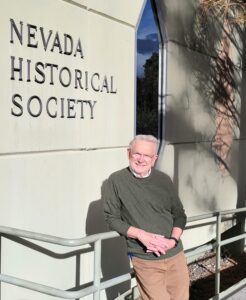
Dr. William “Bill” D. Rowley, historian
Dr. William “Bill” Rowley worked at UNR from 1971 to 2015. Over his many active years in history, Rowley taught a variety of classes in the History Department from Nevada history to Westward Movement in American History, Environmental History, and U.S. Government – Native American Relations. He also spent a great deal of time in research and writing both book-length histories as well as articles, government publications, and professional presentations. Some of his major books include M. L. Wilson and the Campaign for the Domestic Allotment Plan (University of Nebraska Press, 1970), Reno: Hub of the Washoe Country (Woodland Hills, California: Windsor Publications, 1984), and Reclaiming the Arid West: The Career of Francis G. Newlands (University of Indiana Press, 1996).
Outside of his position at UNR, Rowley also served widely within the larger history profession, serving on committees, working with conferences, and acting as an expert witness in court cases. He served seventeen years as Executive Secretary of the Western History Association (1974-1990) and local arrangements chair for three local conferences of the Western History Association in Reno and Lake Tahoe (1970, 1990, 2010). He also brought other historical organizations to Reno for their academic conferences, especially the Agricultural History Society. Rowley served as expert witness on several important cases concerning water rights and grazing questions in the American West for the U.S. Department of Justice. Most prominent was the in-stream water rights case in Greely, Colorado and the Wayne Hage Case over grazing issues with the Bureau of Land Management tried in Reno, Nevada in 2011-2012.
Make sure to arrive early as we have limited seating available in our Event Space. Don’t forget, we provide free, temporary parking permits to make it easier to visit NHS!
